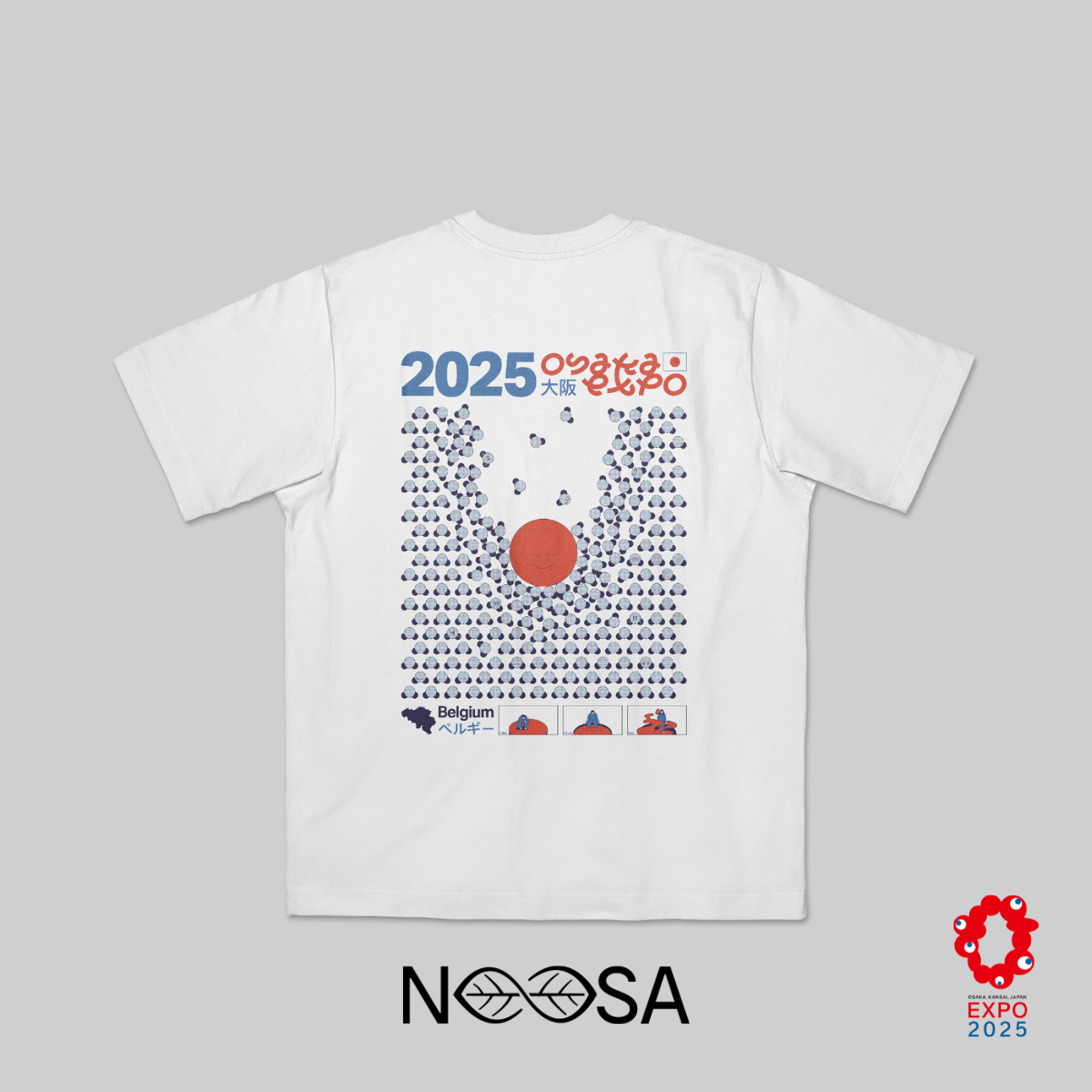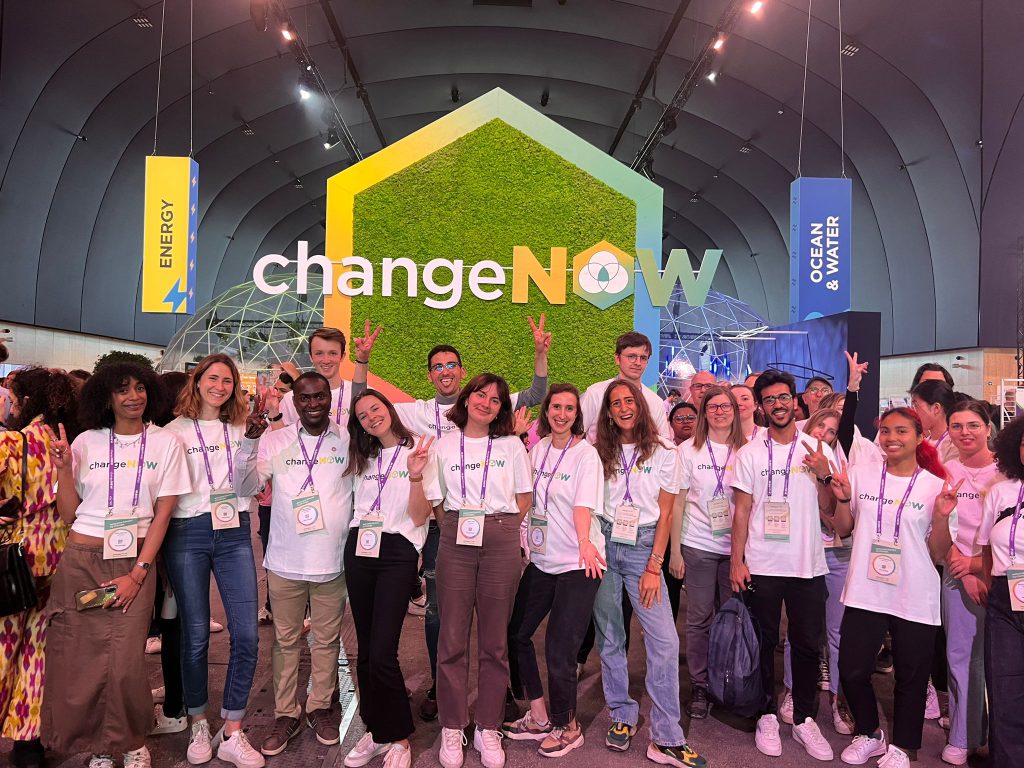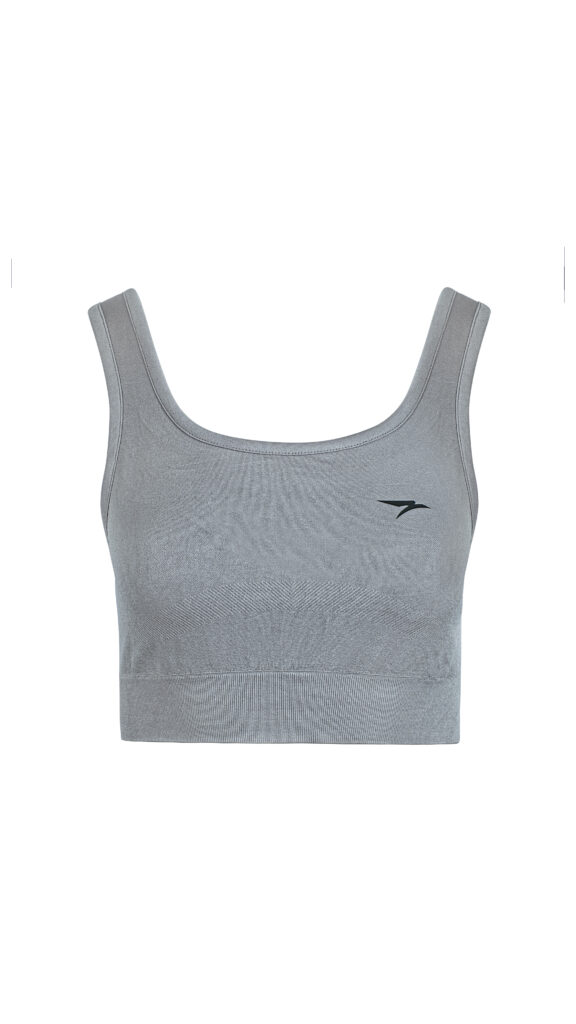At NOOSA®, we believe innovation is the key to shaping a more sustainable future. That’s why we’re thrilled to announce that our 𝗡𝗢𝗢𝗦𝗔® t-shirts—crafted entirely from bio-based and recyclable materials—will be available for purchase at the World Expo 2025 in Osaka, Japan at the heart of the Belgian Pavilion!
The World Expo is the occasion for each country to demonstrate their innovations. The Expo’s theme, “Designing Future Society for Our Lives,” resonates deeply with our mission to transform the textile industry. In line with this vision, our t-shirts are a testament to how sustainability and performance can coexist harmoniously. Made from our pioneering NOOSA® fiber and enabled by NOOCYCLE® technology, these circular t-shirts are designed to be fully recyclable—making them not just clothing but catalysts for change.
For this special occasion, we’ve designed an exclusive t-shirt inspired by Japanese aesthetics and the transformative concept of the three states of matter: solid, liquid, and gas. This unique creation celebrates both NOOSA®’s innovative spirit and the rich cultural heritage of Expo 2025’s host country.
But these t-shirts are more than just garments. They are a breakthrough in comfort and functionality, offering superior breathability and hypoallergenic qualities. Whether you’re navigating the vibrant Expo or exploring Osaka, the NOOSA® t-shirt will keep you feeling fresh, comfortable, and ready for adventure.
At NOOSA®, we are proud to contribute to the global dialogue on circularity, proving that fashion can evolve to meet the demands of a smarter, more sustainable world. From April 13 to October 13, visitors to the Expo can explore our innovative designs and join us in making a difference—one t-shirt at a time.
Let’s design the future together. See you at the World Expo 2025!
More information on the Belgian Pavilion here: Expo 2025 Osaka




